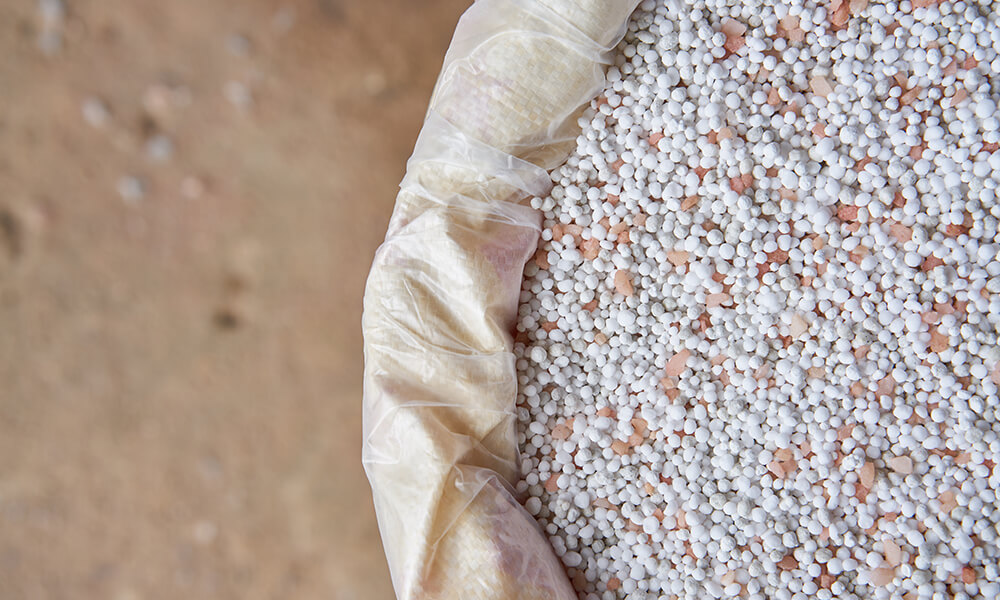Comparing Organic VS Chemical Fertilizers
Many people enjoy gardening and landscaping in the warmer months, and those with green thumbs are able to grow crops, flowers, and beautiful lawn arrangements. However, there are other people who may not be gifted with green thumbs, and find they struggle to grow and nurture plant life. By using fertilizer, gardeners are able to grow better plants and vegetables, and more easily maintain the plant’s health. When shopping for fertilizer, choosing between organic or chemical fertilizers can be a difficult decision. Let’s discuss the benefits and disadvantages of each, so you feel better equipped when shopping for food to nourish your own garden.

Benefits of Organic Fertilizers
Some people opt for natural fertilizers because they are minimally processed. The nutrients remain bound up in their natural forms, rather than being extracted and refined. When discussing fertilizer, the word “organic” doesn’t mean the same thing as when people refer to organic food. Natural fertilizers are still processed, and often times the manure or compost is processed on the farm it will be used on.
One of the main reasons farmers and gardeners alike opt for natural fertilizers, is because they are biodegradable, sustainable, and overall more environmentally friendly than their counterparts. Not only do organic fertilizers not emit harmful chemicals into the atmosphere, they also help provide cleaner and less chemically altered plants and crops. People who regularly cook with the vegetables grown in their backyard enjoy the fact that the fertilizer used to help nurture the plants was not chemically altered, and believe they will reap health benefits from using organic fertilizers.
Disadvantages of Organic Fertilizers
Microorganisms are required to properly nourish the soil, since they need warmth and moisture to accomplish this, organic fertilizers are limited in effectiveness seasonally. In the colder months, organic fertilizers may not be as effective. Another disadvantages might be the pace of the fertilization that occurs with plants when using organic fertilizers. Many people feel discouraged when their garden takes longer to bloom than with chemical fertilizer, but don’t fret. Organic fertilizer doesn’t contain the chemicals that make your plants grow more quickly, but then will grow just the same, albeit a bit slower than with chemical fertilizers.
Benefits of Chemical Fertilizers
Unlike organic fertilizers, chemical fertilizers are engineered to administer nutrients to plants quickly; therefore, improvement is seen far more rapidly. This can be an advantage for people who began planting late in their lawn and hope to see improvements as soon as possible. Another reason why improvements are seen more quickly than in organic fertilizer is thanks to the exact ratio between chemicals. Scientists are able to process and adjust the ratio so the nutrients are perfectly balanced. While the processing of fertilizer might seem like a disadvantages, many at-home-farmers enjoy that they receive the perfect amount of nutrients needed for a happy garden.
The standardization of chemicals in these processed fertilizers are easier to understand, and many labels make efforts to elaborate on each chemical and their particular uses. This allows gardeners to feel more aware of what they’re feeding their plants and helps simplify the fertilizer selection process. In addition to being simple to understand and select, these fertilizers are also inexpensive since they are easily mass produced.

Disadvantages of Chemical Fertilizers
As you might be beginning to notice, the advantages and disadvantages of chemical versus organic fertilizers are almost exact opposites. Many people stray from chemical fertilizers due to their harmful chemicals that have negative impact on our environment, and, some believe, our bodies. They are primarily made from processed material, and most contain fossil fuels. Acting as a double edged sword, chemical fertilizers can either over fertilize, providing too much nutritional value directly to the source, or not fertilize as effectively as possible due to leaching.
At the end of the day, the argument between whether or not farmers and gardeners should use organic or chemical fertilizers is an age old debate. There are endless pros and cons for each type of fertilizer, and should be chosen based on the needs of the garden and skill of the individual administering it. If you’re a farmer looking to insure your crops, Crop Insurance Solutions can provide the assistance you need no matter how you choose to run your operation.
